Madness Radio: Voices And Visions from Outside Mental Health explores 'madness' from beyond conventional perspectives and mainstream treatments, featuring survivors, authors, advocates, professionals, and artists.
Hosted by Will Hall, with guest co-hosts Jacks McNamara and Jessica Gallinger, Madness Radio launched in 2005 on Valley Free Radio and aired more than 200 shows since then. We've been broadcast on KBOO in Oregon, syndicated on other stations through Pacifica, and currenrly podcasting on Spotify, Stitcher, iTunes, Pandora, and Google Play. More info on our About page.
Check out the Madness Radio book! Outside Mental Health: Voices and Visions of Madness gathers edited show interviews and additional content, and is available in print and as a free download.
Madness Radio is an affiliate of Mad In America Radio!
Check out www.madinamerica.com. Theme music courtesy Bonfire Madigan. Thanks to past Madness Radio Producers Jenka Soderberg, Nina Packebush, Leah Harris and Jeremy Lanzman. And thanks to our 190+ Madness Radio Kickstarter donors for supporting the show!
Listen to recent shows below or find us in your favorite podcast app, subscribe to be notified of new episodes on the right, browse by topics, search by keyword, or see a list all 200+ shows by date and title, in the archive. (Shorter versions are also available.)
Madness Radio is creative commons copyright! Please copy, post, and share freely. And get involved: send topic ideas, leave comments, ask FM stations to air us, leave an iTunes review, or make a donation.
Life After Psych Meds | Laura Delano | Madness Radio
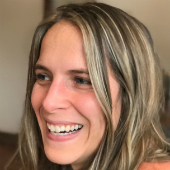
How can people come off psychiatric medications in the safest way? What are the key lessons and vital ingredients for leaving psychiatric care? Is there life after meds? Laura Delano spent 14 years as a psychiatric patient before she left behind her psychiatric diagnoses and reclaimed herself. Today she is Director of the Inner Compass Initiative and The Withdrawal Project, working to support drug withdrawal and build community beyond the mental health system. www.theinnercompass.org withdrawal.theinnercompass.org https://bit.ly/2ISZuzh
withdrawal.theinnercompass.org/preparewithdrawal theinnercompass.org/page/twp-connect
Podcast: Play in new window | Download (Duration: 56:06 — 51.4MB)
Subscribe: RSS
Queer Teen Pregnancy | Nina Packebush | Madness Radio
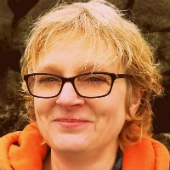
What’s it like to be a teenager in a psychiatric hospital? What’s it like to be a queer pregnant teenager? And is it true that friends do make the best medicine? Nina Packebush explores these questions and more in her groundbreaking debut young adult novel, Girls Like Me. Girls Like Me is an In the Margins 2018 recommended book and a Lambda Literary Finalist. Nina is a queer-identified, grown-up teen mom, writer, zine maker, and mental health advocate – as well as Madness Radio Producer. www.ninapackebush.com
www.wehaveraisedpresidents.org
Podcast: Play in new window | Download (Duration: 54:30 — 50.0MB)
Subscribe: RSS
Legacy of R.D. Laing | Michael Guy Thompson | Madness Radio

Is psychosis a journey and a breakthrough to somewhere more authentic? Should unhappy people be made to adjust to a mad society? Scottish psychiatrist R.D. Laing was a fierce critic of the mental health system, and saw madness as a rational adaptation to irrational family and social constraints. Laing’s compelling prose, acute intellect, and spiritual insight made a huge cultural impact worldwide, shaping the psychiatric survivor movement and calling to overturn social conventions during the U.S. war in Vietnam and the revolutionary 1960s. How are Laing’s provocative insights about politics and culture still relevant today?
Michael Guy Thompson, a psychoanalyst and founder of the Gnosis Retreat Center, worked with R.D. Laing in London and has created hospital alternative sanctuaries for people struggling with experiences called psychosis. He directs the annual R.D. Laing in the 21st Century Symposium at Esalen Institute. www.gnosisretreatcenter.org www.michaelguythompson.com
www.rdlaingsymposium.com
Podcast: Play in new window | Download (Duration: 46:53 — 42.9MB)
Subscribe: RSS
Crazywise Film | Phil Borges | Madness Radio
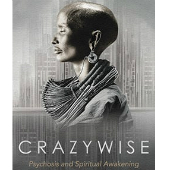
Is madness breakdown or initiation into a spiritual calling? Crazywise is a documentary film that explores the meaning of psychosis from the perspective of traditional cultures and shamanism, following the stories of people struggling with extreme states, spiritual awakening, and the mental health system’s failures. Filmmaker Phil Borges is an award winning photographer and filmmaker whose work has appeared on National Geographic and Discover. www.crazywisefilm.
Podcast: Play in new window | Download (Duration: 57:52 — 53.0MB)
Subscribe: RSS
Traditional South African Healing | Gogo Ekhaya Esima | Madness Radio
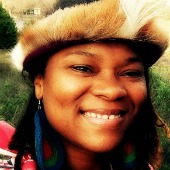
How can seeing visions and hearing voices be transformed into a spiritual gift for healing? What does the initiation ordeal into becoming a shaman involve? Gogo Ekhaya Esima was diagnosed with psychosis and confined in psychiatric hospitals before she became an initiated Sangoma healer in the Zulu tradition of South Africa. Today she is a certified Peer Recovery Specialist in mental health, a trauma survivor, and a spiritual teacher and was recently featured in the film Crazywise.
Podcast: Play in new window | Download (Duration: 55:37 — 51.0MB)
Subscribe: RSS
Hearing Voices | Lisa Forestell | Madness Radio
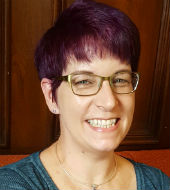
What is it like to hear voices — and are all voices harmful or can they also be helpers? What does voice hearing say about the human mind – and the society we live in? And how can we support people who hear voices? Lisa Forestell has heard voices since she was a child. She is an organizer with the Hearing Voices Movement and with the Western Massachusetts Learning Community, a mutual support initiative run by and for people with lived experience of unusual and extreme states of mind labeled as “mental illness.” http://www.westernmassrlc.org/
Podcast: Play in new window | Download (Duration: 57:38 — 53.0MB)
Subscribe: RSS
Meditation and Liberation | Nirali Shah | Madness Radio

Is mindfulness meditation about calming the mind and accepting things as they are? Or is it a force for social change and challenging oppression? Can meditation help us become intimate with our wild, primal and untamed creative force? Nirali Shah, certified UCLA mindfulness facilitator and teacher at Spirit Rock, has spent thousands of hours meditating, as well as serving in one of the largest slum communities of Asia. She currently teaches with technology companies such as Google as well as academic institutions and non-profits, with a focus on re-wilding the self.
http://www.niralis.com http://bit.ly/2nW1krF
https://www.spiritrock.org/InstructorDetails?calendarinstructorid=177996
https://gtalks-gs.appspot.com/talk/meditation-for-re-wilding-the-self
Podcast: Play in new window | Download (Duration: 58:56 — 54.0MB)
Subscribe: RSS
Audiobook: Coming Off Psychiatric Medications Harm Reduction Guide
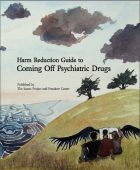
Now available as an audiobook! Based in more than 10 years work in the peer support movement,The Icarus Project and Freedom Center’s 52-page guide is used internationally by individuals, families, professionals, and organizations to support reducing and coming off psychiatric drugs. Includes info on mood stabilizers, anti-psychotics, anti-depressants, anti-anxiety drugs, risks, benefits, wellness tools, psychiatric drug withdrawal, information for people staying on their medications, and much more. Audiobook read by Guide author Will Hall.
A ‘harm reduction’ approach means not being pro- or anti- medication, but supporting people where they are at to make their own decisions. Written by Will Hall, with a 55-member health professional Advisory Board, more than 50 collaborators involved in developing and editing, and now available in 14 languages.
The Guide and this audiobook are Creative Commons copyright and you have advance permission to link, copy, broadcast, and distribute. (Text version here: www.willhall.net/comingoffmeds).
Download the Audiobook here (rt/cntrl-click save as).
Podcast: Play in new window | Download (Duration: 2:03:07 — 113.2MB)
Subscribe: RSS
- Show topics:
- Books
- Coming Off Meds
- Drugs
Refugees and Trauma | Khatera Aslami-Tamplen | Madness Radio
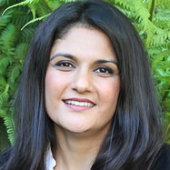
What is it like to flee a war-torn country as a child? What lasting psychological effects do refugees face? Can peer support and trauma informed care lead to lasting recovery? Khatera Aslami Tamplen, an Afghan-American and the Consumer Empowerment Manager for Alameda CountyBehavioral Health Services in California discusses war trauma, the activist struggle to end involuntary commitment, and the value of letting people have a say in their own mental health recovery. pocc.org/ https://copelandcenter.com/facilitators/khatera-aslami
Podcast: Play in new window | Download (Duration: 47:10 — 43.2MB)
Subscribe: RSS
Borderlands Acupuncture | Herman Garcia – Ryan Bemis | Madness Radio
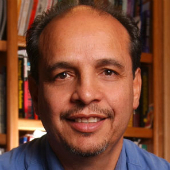
Are psychiatric treatments, experts, and medications the best way for traumatized communities to heal their mental health problems? Could indigenous practices, including traditional Chinese medicine and acupuncture, offer a different way forward — through grassroots community development?
Herman Garcia is the Vice President and Ryan Bemis Founder of Crossroads Community Supported Healthcare, which offers practical skills training to local healers in the violence-stricken communities of Ciudad Juarez and Sierra Tarahumara, Mexico. Joined by health promotors Maria de Jesus, Sister Maria de Rosario Cordova, and Gloria of the Rahrami indigenous group, they discuss supporting communities harmed by the War on Drugs, severe poverty, and inequality. Thanks to Cynthia Pompa for translation.
www.freedom-center.org/files/FreedomCenteracupuncture_brochure.pdf
www.freedom-center.org/files/TrainingGazetteAcupuncture3-06Newspaper.pdf
http://bit.ly/2d4UmfF http://www.americamagazine.org/issue/valley-sorrows
https://en.wikipedia.org/wiki/Rar%C3%A1muri_people
Podcast: Play in new window | Download (Duration: 55:28 — 127.0MB)
Subscribe: RSS
Geography of Madness | Frank Bures | Madness Radio
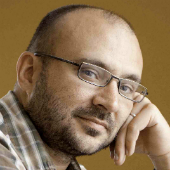
Are beliefs in witchcraft and “voodoo death” not real? Do magical explanations of disease mean people are primitive and less educated? Or are stories and beliefs at the heart of reality for all cultures – including yours?
Frank Bures, author of The Geography of Madness: Penis Thieves, Voodoo Death, and the Search for the Meaning of the World’s Strangest Syndromes, looks beyond travel literature’s colonial superiority and explores how meaning, perception, and belief shape what we think of as “real” in disease and health.
Podcast: Play in new window | Download (Duration: 50:09 — 114.8MB)
Subscribe: RSS
Human Rights in India | Bhargavi Davar | Madness Radio
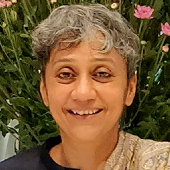
How does the legacy of colonialism affect mental health in India? Are women’s rights, spiritual freedom, and ant-colonialism intertwined? Do women who choose a path of spiritual renunciation have the same freedom as men? Where are human rights more respected: in traditional temples, or in hospital locked wards?
Bhargavi Davar’s mother Bapu was a psychiatric abuse survivor persecuted for her religious devotion. Bapu’s struggle inspired Bhargavi to found the Bapu Trust, where she leads advocacy for mental health reform and community development throughout Asia. Bhargavi is also a lead organizer with INTAR, the International Network Towards Alternatives for Recovery.
www.baputrust.com http://bit.ly/1Mkn3u9 http://bit.ly/1TY2Ap0
www.intar.org
https://www.hrw.org/news/2014/12/03/india-women-disabilities-locked-away-and-abused
Podcast: Play in new window | Download (Duration: 56:58 — 130.4MB)
Subscribe: RSS
Intergenerational Trauma | Naas Siddiqui | Madness Radio
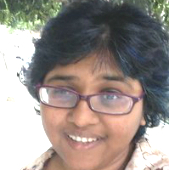
What if psychotic experiences express historical and intergenerational trauma? Does one person’s emotional crisis reach beyond their own individual mind? Could synchronicities and meaningful coincidences guide recovery instead of just being “symptoms”?
Naas Siddiqui, a psychiatric survivor and therapist in training who founded the Spiritual Emergence and other Unusual Experiences student group, descended into altered states after withdrawing from psychiatric medications. She discovered how her Bangladeshi heritage shaped her madness, and found a unique pathway to use her visionary states to heal personal and family trauma.
http://www.madinamerica.com/2015/10/transmuting-historical-trauma/
https://www.madinamerica.com/author/nsiddiqui/
Podcast: Play in new window | Download (Duration: 50:22 — 115.3MB)
Subscribe: RSS
New Vision for Psychiatry | Jim van Os | Madness Radio
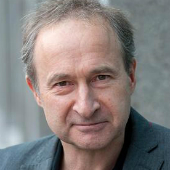
What if psychiatry recognized that schizophrenia does not exist? How might diagnostic categories (left over from the asylum era) be replaced by spectrums of experience that show how psychotic experiences can also be normal? What if services were oriented around individuals, not the statistical groups of “evidence based” research? And could the mental health system as we know it, which defines health as the absence of disease symptoms, be replaced with a new definition of health, health as empowerment in life?
Jim van Os, professor of Psychiatric Epidemiology at Maastricht University and member of the Royal Dutch Academy of Science with more than 700 publications, is one of the top one percent highly cited scientists in the world. His research combines with the experiential knowledge of people with lived experience of psychosis to envision a radically new direction for the mental health system. (Alternate 58 min version here.)
https://www.madnessradio.net/files/SchizophreniaDoesNotExist-vanOs-BMJ.pdf https://www.madnessradio.net/files/HuberHowShouldWeDefineHealthbmjd4163.pdf
http://www.brown.uk.com/schizophrenia/rossler.pdf
http://www.huffingtonpost.com/
http://bit.ly/1IYsEez
Podcast: Play in new window | Download (Duration: 1:05:24 — 149.7MB)
Subscribe: RSS
Stop The Murphy Bill | Leah Harris | Madness Radio

The Families in Mental Health Crisis Act HR 2646 — The Murphy Bill — proposes drastic changes to US mental health policies. Will the Murphy Bill curb violence and improve care? Or will more forced treatment, medication, and hospitalization only enrich pharmaceutical and medical industry power and reinforce stereotypes at the expense of real human needs?
Leah Harris, psychiatric abuse survivor and organizer for the Campaign for Real Change in Mental Health Policy, completed an investigative report on the Murphy Bill’s potential impact on people in crisis, how the gun manufacturer lobby is involved, and the role of Otsuka Pharmaceuticals.
www.realmhchange.org http://www.ndrn.org/en/issues/mental-health/protect-paimi.html www.proteus.com/press-releases/u-s-fda-accepts-first-digital-medicine-new-drug-application-for-otsuka-and-proteus-digital-health/
Podcast: Play in new window | Download (Duration: 56:20 — 51.6MB)
Subscribe: RSS
- Show topics:
- Activism
- Big Pharma
- Human Rights
- System Abolition


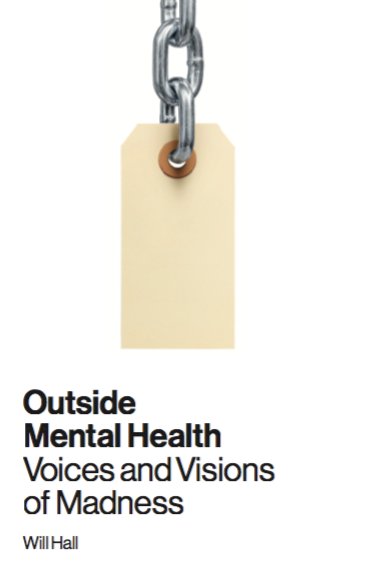
























 Creative Commons 2.5 copyright
Creative Commons 2.5 copyright
Recent Comments